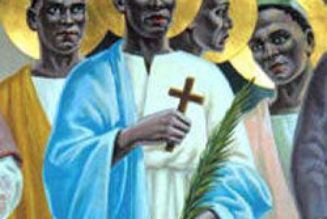By Fr. Jerry Pokorsky ( bio – articles – email ) | Mar 29, 2022
In the rough and tumble of political elections, politicians use opposition research to help craft their campaign strategies. There may be nothing offensive in bringing to light an opponent’s record. But the revelations may violate the Eighth Commandment, when deliberate distortions or unnecessary disclosures unjustly smear an adversary.
In Robert Penn Warren’s book, All the King’s Men, the Huey Long figure uses opposition research to uncover dirt on his opponents. Willie Stark ominously observes, “Man is conceived in sin and born in corruption, and he passeth from the stink of the didie [baby’s diaper] to the stench of the [funeral] shroud. There is always something.” Indeed. We are all sinners, and our personal stories can be ugly. The Church insists upon the seal of confession for good reasons. A priest must not reveal the sins of a penitent under the pain of mortal sin but also the pain of excommunication. (“A confessor who directly violates the sacramental seal incurs a latae sententiae excommunication reserved to the Apostolic See; one who does so only indirectly is to be punished according to the gravity of the delict.” Can. 1388 §1)
The Eighth Commandment protects our right to a good reputation under ordinary circumstances. We don’t reveal secrets, ugly or otherwise. Traditional Catholic moral manuals teach that exposing another person’s grave moral failing—even if true—without a sufficient and just reason is a mortal sin. Today biographers and journalists usually do not exercise the moral restraint required by the Commandments. They want all the dirt that’s fit—or unfit—to print.
Biographies can become a form of opposition research. Many famous and prominent people object to the contents of their biographies. Details are often wrong and distort their character and motives. Most of us are less likely to object to errors that overemphasize our positive character traits. Perhaps the positive misrepresentations will offset the negative ones.
Famous people are usually long dead before historians publish their book-length biographies. Historians may not identify their work as opposition research, but critical analysis may bring the same results. The prospect of post-mortem biographies that misrepresent us is unsettling. So a wise and famous person learns to identify biographers friendly to his cause. Court historians selectively report the history and prepare narratives that place the best spin on their subjects. Maybe Joseph Stalin, Adolph Hitler, and Mao lacked friendly court historians to rescue their reputations.
Saints and popes have court historians,too. Beware of those haloes. Personal affection for a great person can subtly influence even the most honest biographers and editors. In her diary—written under obedience to her superiors—Saint Therese of Lisieux wrote of her annoyance with the eating habits of one of the sisters—the clicking of teeth, if memory serves. After her death, the editors put the final touches on her story. We can’t have a saint suffering from petty aggravations, they thought. So they changed the narrative to read that the tapping of rosary beads on the chapel pew distracted the great young doctor of the Church!
Honest memoirs have significant value, documenting motives, triumphs, and mistakes. The recollections help historians assemble the many pieces of the puzzle of a great man’s life. The memoirs of U.S. Grant are among the impressive works of autobiographical honesty and historical reliability. (He called his bloody frontal assault on Confederate positions at Cold Harbor his most significant mistake in the war.) Saint Augustine’s Confessions is not only a self-revelatory spiritual masterpiece; it is also a classic of great literature. John Henry Newman’s tried to set the record straight against attacks on his character in his Apologia pro vita sua. Personal memoirs, honestly written, provide many important insights into a person’s life.
We who lack fame and fortune, even if we are not likely candidates for best-selling biographies, have similar concerns. We hope our families have kind words for us at our funeral. We value a good reputation and usually resent even the smallest of insults. Detraction, gossip, and slander are common in biographies. The same violations with misunderstandings and misrepresentations are also ordinary occurrences in our family circles. In times of confrontation, it is also all too common for us to line up supporting factions within our families and workplaces. We all feel the need for allies to protect our reputations from abuse and distortion.
After returning to his family, the Prodigal Son needed such an ally. His brother was furious with him. The elder’s “opposition research” on his wayward brother was accurate. The Prodigal Son had squandered his portion of the father’s inheritance, and he was back for more. His return to good graces probably meant a further reduction in the older brother’s share of the father’s estate. Didn’t dad realize that his son was playing him like a violin? Most of us may find ourselves agreeing with the brother.
Undoubtedly the father recognized the imperfections of his prodigal son. He knew his son was a work-in-progress. He realized that there is nothing wrong with coming to our senses when we acknowledge how our stupidities have caused needless pain and suffering. So for the moment—and as long as the son remained on good behavior—the old man rejoiced at his son’s return, defending the young man’s reputation: “For this, my son was dead, and is alive again; he was lost, and is found.” (Lk. 15:24)
Whether we are rich and famous or poor and obscure, the best biographer we have is the Father, as we know Him through our brother, Jesus. If we keep up a conversation with Jesus and are responsive to the graces of the Holy Spirit, He will always plead our cause. He will inspire us to honesty and goodwill, and openhearted charity. He will bring us to repentance. He will tidy up our reputations.
Jesus will protect our reputations even when we are under the assault of the devil’s opposition research: “Blessed are you when men revile you and persecute you and utter all kinds of evil against you falsely on my account. Rejoice and be glad, for your reward is great in heaven.” (Mt. 5:12)
Sound Off! CatholicCulture.org supporters weigh in.
All comments are moderated. To lighten our editing burden, only current donors are allowed to Sound Off. If you are a current donor, log in to see the comment form; otherwise please support our work, and Sound Off!

There are no comments yet for this item.
Join Our Telegram Group : Salvation & Prosperity










![Please don’t give up on in-person teaching, Notre Dame [paywall]…](https://salvationprosperity.net/wp-content/uploads/2020/08/please-dont-give-up-on-in-person-teaching-notre-dame-paywall-327x219.jpg)